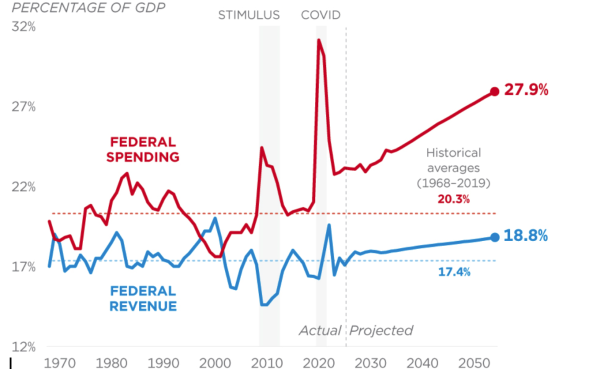More girls decide to join the math team
Are girls as good at math as boys? Of course, as indicated by the even split between girls and boys in higher level math courses at Westminster. Yet, not many girls participate in math competitions. This year, the math department launched an initiative to encourage more girls to join the math team.
Lina Ellis, advisor of the math team, leads the initiative. Ellis was one of the 28 recipients from across the country to receive the Edyth May Sliffe Award for Distinguished Math Teaching. This award is given by the Mathematical Association of America and recognizes educators for encouraging students to excel in math and participate in math competitions.
“The past couple years, it seems like whenever we go to a math contest, it’s almost all boys, so sometime last spring, I decided that one of my goals would be to encourage more girls onto the math team,” said Ellis.
According to Doug Boomer, chair of the math department, the initiative is based on specific data, showing that the issue does not lie in the lack of interest in the subject of math but in escalating that interest to competitions. The initiative will not only strengthen the team but also broaden the school’s math community.
“In our elevated math courses at the school, the girls populate the classes in a higher percentage than they are actually competing in the math team, so we realize that there is some potential there and we want to try to get their involvement because it will help us to win more but more importantly to have fun and be more fully engaged with the rest of the math community,” said Boomer.
In order to find out more about why girls did not join the math team and to gauge interest levels, Ellis put out a survey on the student announcements.
“A couple people said they would walk by the door and see that it was all boys and not decide to come,” said Ellis.
The fast pace of math competitions might be intimidating to some. However, for those who are used to the pace it becomes a habit. Being on a math team provides this practice to work through problems with increased accuracy and speed.
“Math team is a very enthusiastic environment which boys have been the majority of for a while and boys tend to be more competitive and aggressive,” said Boomer. “Some of the boys we have are very fast when they work, and I know, even myself, that when I go into the room most of the students who are on the math team process through problems faster than I do, so I can see possibly an intimidation factor there.”
Adding to the apprehension of the intensity of math competitions is the self-fulfilling prophecy that the math team is for boys only. This inhibits girls from even trying to join the team.
“I think that a lot of girls notice that it is a mostly boys club so they never feel the need to join and when there are no girls in it, others feel the same way because they don’t want to be alone,” said freshman Sophia Rackcliffe.
While some students, like ninth grader Finn Walsh, believe that academic teams, in general, tend to be male dominated, there is also the idea that part of the problem may be a lack of awareness.
“I think there weren’t a lot of girls on math team because it wasn’t advertised as much to the girls, and most of them probably didn’t even know that there is a math team,” said tenth grader Andrew Mao.
In order to encourage more girls to participate in math competitions, Ellis sent out emails, put up flyers, and put a survey on the student announcements, hoping that some girls would be able take the first step and this would encourage other girls to follow.
“I think every time you have something traditionally dominated by male numbers there’s going to be a threshold that needs to be crossed for females to work their way in and get comfortable,” said Boomer.
For now, the focus is on educating the girls about math competitions and the math team while building confidence in their ability to compete.
“Ms. Ellis organized some events for the math team to invite girls in and to show them what math team really is and to prove to them that they can do it because a lot of girls just haven’t had the experience to come into math team and they haven’t learned what it’s really like, so once you get past that first barrier and you show them what it really is, it becomes a lot more interesting,” said Anup Bottu, co-captain of the math team.
The math team’s first meeting was on September 10. According to Ellis, there were 19 girls on the roster last year and that number almost doubled this year to 33. However, the total number of students also doubled, so the percentage of girls on math team roster remained about the same.
“Advertising for girls ends up advertising for everyone,” said Ellis.
At the first meeting, there was an almost even split between girls and boys.
“Just looking at the first meeting, there was a lot more of an even balance between girls and boys and the environment is just richer,” said Bottu.
According to Ms.Ellis this is the step in the right direction. The math department is fully committed to making girls feel welcome on the math team and ensuring that they have an enriching experience.
“Ultimately, really what I believe is the more girls that do get involved and have fun the the more girls will follow as long as there is some intentionality behind it on our parts to let them know they are welcome,” said Boomer.
Even outside of Westminster, there is an interest in engaging more girls in math tournaments. While attending a math conference at the University of Georgia a couple of weekends ago, a professor at UGA broached the subject with Ms.Ellis. With all the initiatives to involve more girls in the math team here at Westminster, Ms.Ellis is hopeful.
“Maybe someday we will manage to have an all girls math tournament.”




